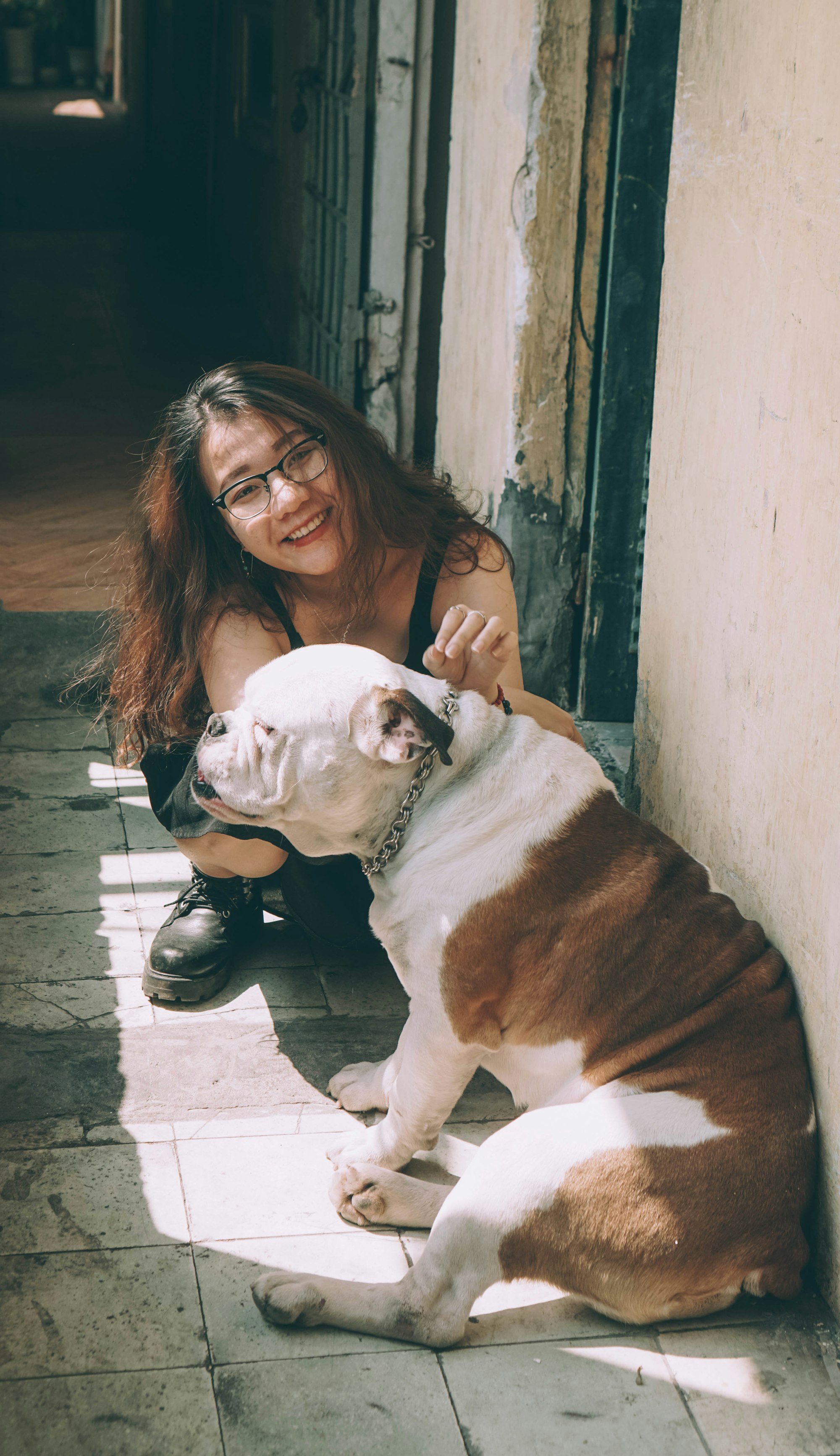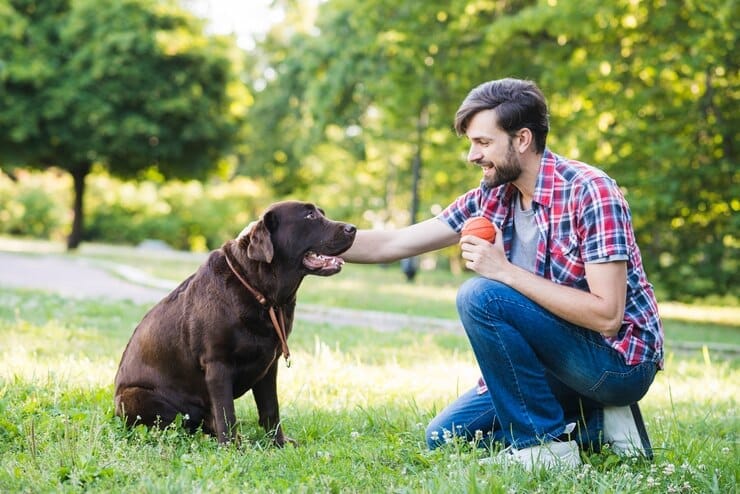When bringing a lovable English Bulldog into your home, one of the essential aspects to consider is their life expectancy. Understanding the average lifespan of this popular breed is crucial for responsible pet ownership and can help you plan for their care and well-being. In this article, we will delve into the factors that influence the English Bulldog's life expectancy, offer tips on how to extend their lifespan and address common concerns about their health and longevity.
The Average Lifespan:
English Bulldogs have a relatively short lifespan compared to other breeds. On average, they live between 8 to 10 years. However, with proper care and attention, some Bulldogs have been known to live beyond the expected age.
Genetic Factors That Affect Lifespan
Genetics plays a significant role in determining a dog's life expectancy. English Bulldogs are prone to specific hereditary conditions, such as hip dysplasia, respiratory issues, and heart problems. Responsible breeders can help minimize these risks by selecting healthier breeding pairs and conducting genetic testing.

The Importance of a Balanced Diet
A well-balanced diet is essential for an English Bulldog's overall health and longevity. Providing them with high-quality dog food that meets their nutritional needs is crucial. Avoid overfeeding, as obesity can lead to various health issues and shorten their lifespan.
Regular Exercise and Mental Stimulation
1. Daily Walks
Even though English Bulldogs may not be the most active dogs, they still need regular exercise to stay healthy. Daily walks are a great way to keep them physically active, help maintain a healthy weight, and prevent joint issues.
2. Playtime: Engage in interactive playtime with your Bulldog. Play fetch, tug-of-war, or any other games they enjoy. This not only provides physical exercise but also strengthens the bond between you and your furry friend.
- Puzzle Toys: Provide puzzle toys or treat-dispensing toys to stimulate their minds. Bulldogs are intelligent dogs, and mental stimulation can prevent boredom and destructive behaviors.
4. Training Engage: Engage your Bulldog in training sessions. Teaching them new tricks or commands keeps their minds active and helps build a well-behaved and happy companion.
5. Rotate Toys: Rotate your Bulldog's toys regularly to keep their interest and excitement levels high. New and different toys prevent monotony and keep them mentally engaged.
6. Social Interaction: Allow your Bulldog to interact with other dogs and people. Socialization not only improves their mental well-being but also helps in reducing anxiety and behavioral problems.
Routine Veterinary Care
Regular visits to the veterinarian are vital for maintaining your Bulldog's health and detecting any potential issues early on. Vaccinations, dental care, and preventive treatments for parasites are essential components of an English Bulldog's healthcare regimen. Your veterinarian can also guide nutrition and lifestyle adjustments based on your Bulldog's individual needs.
Proper Dental Care
Dental health is often overlooked but plays a significant role in a Bulldog's overall well-being. Regularly brushing their teeth and providing dental chews can prevent dental problems that may impact their life expectancy. Dental issues not only affect their oral health but can also lead to more severe health problems if left untreated.
Creating a Safe Environment
English Bulldogs are prone to injuries due to their brachycephalic skulls and stocky bodies. It's essential to create a safe environment, especially if you have stairs or slippery surfaces in your home. Here are some steps to consider:
- Install baby gates or barriers to prevent access to areas with potential hazards.
- Remove or secure any objects that your Bulldog could knock over or ingest.
- Keep toxic plants, chemicals, and small objects out of reach.
- Provide soft, non-slip surfaces to minimize the risk of injuries.
- Supervise outdoor playtime to ensure they don't overexert themselves.
Monitoring Their Weight
Maintaining a healthy weight is crucial for an English Bulldog's overall well-being and longevity. Obesity can lead to numerous health problems and reduce life expectancy. Here's how you can monitor their weight:
- Weigh your Bulldog regularly using a reliable scale.
- Keep track of their body condition score, which helps assess their weight and overall health.
- Consult with your veterinarian if you notice any sudden weight changes.
- Adjust their diet and exercise routine if needed to maintain a healthy weight.
By providing a safe environment and monitoring their weight, you can contribute to your English Bulldog's well-being and help them live longer healthier life.

Providing Mental Stimulation
English Bulldogs, like all dogs, need mental stimulation to stay happy and healthy. Here are some ways to keep their minds sharp and prevent boredom:
- Use interactive puzzle toys to challenge their problem-solving skills.
- Rotate their toys regularly to keep their interest and curiosity.
- Engage in training sessions to teach them new tricks and commands.
- Play hide-and-seek games with treats to stimulate their sense of smell.
- Allow them to interact with other dogs and people for social stimulation.
Knowing When to Seek Veterinary Help
Being attentive to any changes in your Bulldog's behavior and knowing when to seek veterinary help is crucial. Here are some signs that may indicate a visit to the veterinarian is necessary:
- Sudden changes in appetite or water intake.
- Lethargy or decreased activity levels.
- Persistent vomiting or diarrhea.
- Difficulty breathing or excessive panting.
- Lameness or difficulty in walking.
- Unexplained weight loss or gain.
- Changes in skin or coat condition.
Prompt medical attention can make a difference in their overall health and lifespan.

Understanding Common Health Issues
English Bulldogs are prone to certain health issues that can affect their quality of life and longevity. Some common health issues include:
- Brachycephalic Airway Syndrome: Bulldogs' short noses can lead to breathing difficulties.
- Hip Dysplasia: A hereditary condition that can cause pain and lameness.
- Skin Allergies: Bulldogs are susceptible to skin problems and allergies.
- Cherry Eye: A condition where the third eyelid prolapses and becomes visible.
- Dental Problems: Bulldogs are prone to dental issues due to their crowded teeth.
Knowing about these health issues can help you be proactive in their care and seek early treatment if needed.
The Importance of Neutering and Spaying
Neutering (for males) and spaying (for females) have several benefits for English Bulldogs:
- Helps control the pet population and reduces the number of unwanted litters.
- Reduces the risk of certain reproductive-related health problems, such as uterine infections and testicular cancer.
- Can improve behavior, reducing aggression and roaming tendencies.
However, the decision to neuter or spay should be made in consultation with your veterinarian, taking into account your Bulldog's health and lifestyle.
Emotional Well-being
English Bulldogs are affectionate and social animals, and their emotional well-being is vital for their overall happiness. Here are some tips to promote their emotional health:
- Spend quality time with your Bulldog, offering plenty of attention and affection.
- Provide a safe and comfortable space where they can retreat and relax.
- Engage in regular playtime and activities that they enjoy.
- Be patient and understanding, as Bulldogs can be sensitive to changes in their environment.
- Avoid leaving them alone for long periods, as they thrive on companionship.
A happy and emotionally content Bulldog is more likely to lead a fulfilling life.
Common Myths about English Bulldog Longevity
There are several misconceptions surrounding the life expectancy of English Bulldogs. Let's debunk some of the common myths:
- Myth 1: English Bulldogs have a short lifespan of only 5-6 years. While they are a brachycephalic breed with specific health concerns, with proper care, they can live up to 8-10 years or even longer.
- Myth 2: Neutering or spaying will significantly reduce their lifespan. In reality, responsible neutering or spaying can have health benefits and may not significantly impact their overall longevity.
- Myth 3: Bulldogs are not active dogs, so they don't need exercise. While they are not highly active, regular exercise is essential to maintain a healthy weight and promote overall well-being.
- Myth 4: English Bulldogs are not suitable for families with children. Bulldogs can be gentle and loving companions for families with children when properly trained and socialized.
Conclusion
English Bulldogs are wonderful companions known for their charming and affectionate nature. While they may face some health challenges due to their brachycephalic features, with proper care and attention, they can lead a long and happy life.
As a responsible pet owner, focus on providing a balanced diet, regular exercise, and mental stimulation for your Bulldog. Regular veterinary check-ups and early intervention for any health concerns are essential to ensure they live their best life.
By understanding and addressing their specific needs, you can create a safe and loving environment for your English Bulldog, and they will undoubtedly reward you with years of joy and companionship.
FAQs
1. What is the typical lifespan of an English Bulldog?
The typical lifespan of an English Bulldog is around 8 to 10 years. With proper care and a healthy lifestyle, some Bulldogs can even live beyond that range.
2. Are English Bulldogs prone to specific health issues?
Yes, English Bulldogs are prone to certain health issues due to their brachycephalic features. Common health concerns include hip dysplasia, respiratory problems, skin allergies, and dental issues.
3. How can I extend my Bulldog's lifespan?
To extend your Bulldog's lifespan, provide a balanced diet, regular exercise, and mental stimulation. Regular veterinary check-ups and early intervention for any health concerns are also essential.
4. Should I spay or neuter my English Bulldog?
The decision to spay or neuter your English Bulldog should be made in consultation with your veterinarian. Neutering and spaying can have health benefits and may help with behavior management.
5. How important is dental care for English Bulldogs?
Dental care is crucial for English Bulldogs as they are prone to dental problems due to their crowded teeth. Regular brushing, dental chews, and dental check-ups are recommended.
6. How can I promote my Bulldog's emotional well-being?
To promote your Bulldog's emotional well-being, spend quality time with them, provide a safe and comfortable environment, engage in playtime, and avoid leaving them alone for extended periods.
7. What are some common myths about English Bulldog longevity?
Common myths about English Bulldog longevity include the belief that they have a very short lifespan, neutering/spaying significantly affects their lifespan, and they don't need exercise.
8. Is it true that English Bulldogs have breathing difficulties due to their short noses?
Yes, English Bulldogs can have breathing difficulties due to their brachycephalic skulls, which can lead to conditions like brachycephalic airway syndrome.
9. How can I ensure my Bulldog maintains a healthy weight?
To ensure your Bulldog maintains a healthy weight, monitor their food portions, provide regular exercise, and consult with your veterinarian for dietary recommendations.
10. Can English Bulldogs coexist well with other pets in the household?
English Bulldogs can coexist well with other pets if properly introduced and socialized. Early socialization is essential for fostering positive relationships with other animals.
11. Are there any specific exercises suitable for English Bulldogs?
English Bulldogs are not highly active, but they still require regular exercise. Low-impact activities like short walks, playtime, and mental stimulation games are suitable for them.
12. What are some signs that my Bulldog may be experiencing health issues?
Signs that your Bulldog may be experiencing health issues include changes in appetite, lethargy, difficulty breathing, lameness, and skin/coat abnormalities.
13. How often should I take my Bulldog for a veterinary check-up?
Regular veterinary check-ups are essential for your Bulldog's health. Typically, yearly check-ups are recommended, but more frequent visits may be necessary for senior Bulldogs or those with health concerns.
14. Are there any specific precautions I should take during extreme weather conditions for my Bulldog's health?
During extreme weather conditions, such as heatwaves, it's essential to keep your Bulldog cool and hydrated. Avoid strenuous activities during hot weather and provide shade and water.
15. Are English Bulldogs good for first-time dog owners?
English Bulldogs can be suitable for first-time dog owners if they are willing to provide the necessary care and attention these dogs require.
16. How much daily exercise does an English Bulldog require?
English Bulldogs require moderate exercise, around 20-30 minutes of activity per day, but this can vary based on their age, health, and individual preferences.
17. Can I feed my Bulldog homemade meals instead of commercial dog food?
While homemade meals can be an option, it's essential to ensure they meet your Bulldog's nutritional needs. Consult with a veterinarian or canine nutritionist for proper guidance.
18. What are some signs of emotional distress in English Bulldogs?
Signs of emotional distress in English Bulldogs include excessive barking, destructive behavior, withdrawal, aggression, and changes in eating or sleeping habits.
19. Are there any specific grooming requirements for English Bulldogs?
English Bulldogs have short coats, but they still require regular grooming to keep their skin and coat healthy. Regular brushing and cleaning of facial folds are necessary.
20. How can I socialize my Bulldog effectively with other dogs and people?
To socialize your Bulldog effectively, expose them to various people, dogs, and environments from a young age. Use positive reinforcement and reward them for calm and friendly behavior.

